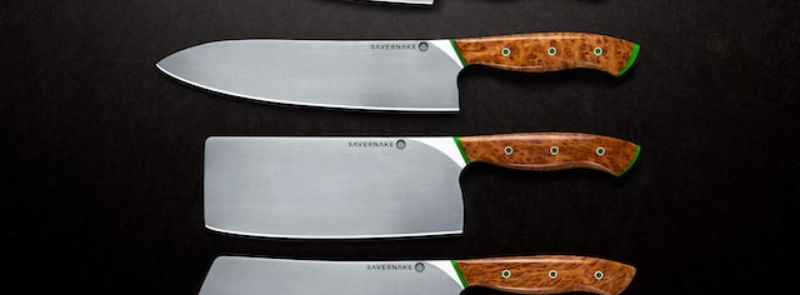
When It Occurs
Every August 24th
Timeline
Days Passed (913)
# Hashtags
#NationalKnifeDay #SharpenYourKnives
National Knife Day on August 24th is a celebration honoring one of humanity's earliest tools. It's a time to appreciate the various knives we use in our daily lives, from those made of bone, stone, and flint in ancient times to today's versions crafted from materials like titanium, bronze, iron, and steel. Knives serve diverse purposes, from cooking and eating to fishing, hunting, and many other tasks. This day is marked by showcasing chopping skills, purchasing new knife sets, and even exchanging and comparing knives with fellow enthusiasts.
It's a wonderful opportunity to recognize the significance of this essential tool in our lives!
Origins and History
The history of knives is as old as human civilization itself:
- Ancient Beginnings: The earliest knives date back to the Stone Age, where they were made from flint, obsidian, and other hard stones. These primitive tools were essential for hunting, food preparation, and protection.
- Evolution: Over time, the development of metallurgy led to the creation of knives made from copper, bronze, iron, and eventually steel. Each advancement in materials and technology improved the durability and effectiveness of knives.
- Cultural Significance: Knives have played crucial roles in various cultures, symbolizing power, craftsmanship, and utility. From the samurai’s katana to the chef’s knife, each culture has developed unique styles and uses for knives.
The Significance of Knives
Knives are significant for several reasons:
- Versatility: Knives are incredibly versatile tools used in cooking, hunting, crafting, self-defense, and various trades. They come in many shapes and sizes, each designed for specific tasks.
- Cultural Heritage: Knives carry cultural and historical significance, often passed down through generations as heirlooms. They represent craftsmanship, tradition, and survival skills.
- Utility: In modern times, knives remain essential tools in kitchens, workshops, and outdoor activities. Their design and functionality continue to evolve, incorporating new materials and technologies.
Ways to Celebrate National Knife Day
There are many enjoyable and educational ways to celebrate National Knife Day:
- Learn Knife Skills: Take a cooking class or watch online tutorials to improve your knife skills. Learn techniques such as chopping, slicing, dicing, and sharpening.
- Visit a Knife Shop: Explore local knife shops or outdoor stores to discover a variety of knives. You might find unique or custom-made knives that suit your interests and needs.
- Sharpen and Maintain Your Knives: Use National Knife Day as an opportunity to sharpen and maintain your knives. A sharp knife is safer and more efficient to use. Learn proper sharpening techniques or visit a professional sharpener.
- Collect Knives: Start or expand your knife collection. Collecting knives can be a rewarding hobby, whether you’re interested in antique knives, custom knives, or specific types like folding knives or fixed blades.
- Appreciate Knife Craftsmanship: Research and appreciate the craftsmanship involved in making knives. Learn about different knife makers, materials, and forging techniques.
- Share on Social Media: Share your knife collection, favorite knives, or knife skills on social media using the hashtag #NationalKnifeDay. Connect with other knife enthusiasts and exchange tips and stories.
- Explore Knife History: Read books or watch documentaries about the history of knives. Understanding the evolution of this essential tool can deepen your appreciation for its significance.
Types of Knives
Here are some common types of knives and their primary uses:
- Chef’s Knife: A versatile kitchen knife used for chopping, slicing, and dicing. It typically has an 8- to 10-inch blade.
- Paring Knife: A small knife with a short blade used for peeling and detailed cutting tasks.
- Bread Knife: A long knife with a serrated edge, ideal for slicing bread and other baked goods.
- Hunting Knife: Designed for field dressing and skinning game, often featuring a robust, fixed blade.
- Pocket Knife: A small, folding knife that can be carried in a pocket for everyday use.
- Tactical Knife: Used by military and law enforcement, these knives are designed for combat and survival situations.
- Bowie Knife: A large, fixed-blade knife known for its distinctive clip-point blade, popularized by 19th-century American frontiersman Jim Bowie.
Fun Facts About Knives
- Oldest Known Knives: The oldest known knives date back to around 2.5 million years ago, made from stone by early humans.
- Culinary Arts: The chef’s knife is considered one of the most important tools in professional kitchens, often referred to as the "workhorse" of the kitchen.
- Custom Knives: Knife-making is a respected craft, with many artisans creating custom knives that are both functional and artistic.
- Symbolism: In many cultures, knives are symbolic of power, protection, and craftsmanship. They are often given as gifts to mark significant occasions.
Conclusion
National Knife Day is a celebration of one of humanity’s oldest and most essential tools. Whether you’re honing your knife skills, exploring the craftsmanship behind knife-making, or simply appreciating the versatility of knives, this day offers an opportunity to recognize the importance and utility of knives in our daily lives. On August 24th, take the time to learn about, care for, and celebrate your knives, and connect with others who share your appreciation for these indispensable tools.


